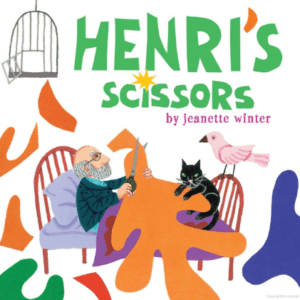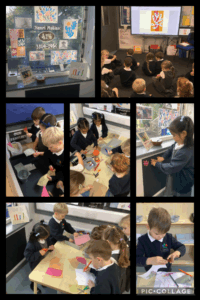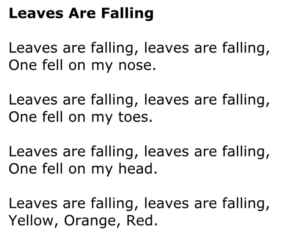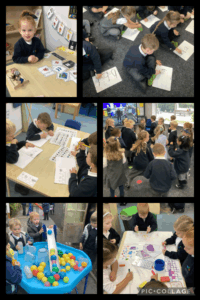Henri’s Scissors – Exploring Art Like Matisse!
This week we have been reading Henri’s Scissors by Jeanette Winter. (If you’re watching it on YouTube, here’s a top tip: click the settings cog along the play bar and turn off autoplay – this helps to avoid inappropriate clips and encourages your child to engage purposefully rather than watching video after video.)

The story is a biographical children’s book about the famous artist, Henri Matisse. We learned about his life and discovered how, even when he became unwell and could no longer paint, he continued to make beautiful artwork by “painting with scissors” – cutting bold shapes and colours to create collages.
Our word of the week was artist. We talked about different types of art and artists, introducing new vocabulary such as sculptor, sculpture and collage.
Then, we became artists ourselves by creating our own colourful collages – just like Matisse!

We used our language and communication skills to explore and respond to Matisse’s artwork. We looked closely at the colours, shapes and patterns and thought carefully about which pieces we liked and why.
We also discussed questions such as:
- Why do you think the artist painted this?
- Which is your favourite, and why?
Here are some of our thoughtful responses:
I like the white part. It looks like snowflakes.
I like the colours because they’re like a rainbow.
I can see square shapes. They both have the same colour at the back.
Phonics
This week, children have been learning the phonemes (the sounds that letters make) h, b, f, and l. They’ve also been practising writing the graphemes (the written letters) for these sounds.
We’ve been challenging children to spell words using the letters they already know. This week, your child has been spelling the words: dog, ten, red, mum and kid.
Can your child tell you which phonemes they can hear in these words?
d-o-g t-e-n r-e-d m-u-m k-i-d
We’ve also learnt a new tricky word: the.
A tricky word is a word that can’t be sounded out using phonics – it’s one they simply have to learn by sight.
The children now know three tricky words: I, is and the
Help at Home: You can support your child’s learning at home by writing these tricky words on pieces of paper or sticky notes and placing them around your house. Keep challenging your child to read them whenever they see them – the more practice, the better! These words need to be recognised instantly, just by looking.
Poetry Basket
Children love listening to and joining in with poems each week. We learn a new poem every Monday and recite it together throughout the week.
Saying the poems out loud helps us focus on sounds, rhythm and rhyme, which supports our early reading skills. We’ve noticed that some poems have a fast and lively beat, while others are slow and gentle.
Follow the link to watch Reception recite this week’s poem – Leaves are falling.

Maths
In Maths, we’ve been using our subitising skills to identify patterns up to 4.
Subitising means being able to see a small number of objects and know how many there are without counting – for example, recognising that there are three dots just by looking.
We practised spotting changes to see whether there were more, fewer or the same and describing the changes we could see. We also explored different representations of 4 using multilink cubes – inspired by our introduction to Numberblock 4!
And finally, here are a few photos from this week’s learning.

Help at home – autumn leaves and conkers.
If you go on a walk this weekend, we’d really appreciate donations of dry leaves to help us with an art project next week. We also need some conkers and acorns to use in our maths learning – see how many you can find! Thank you for your support.